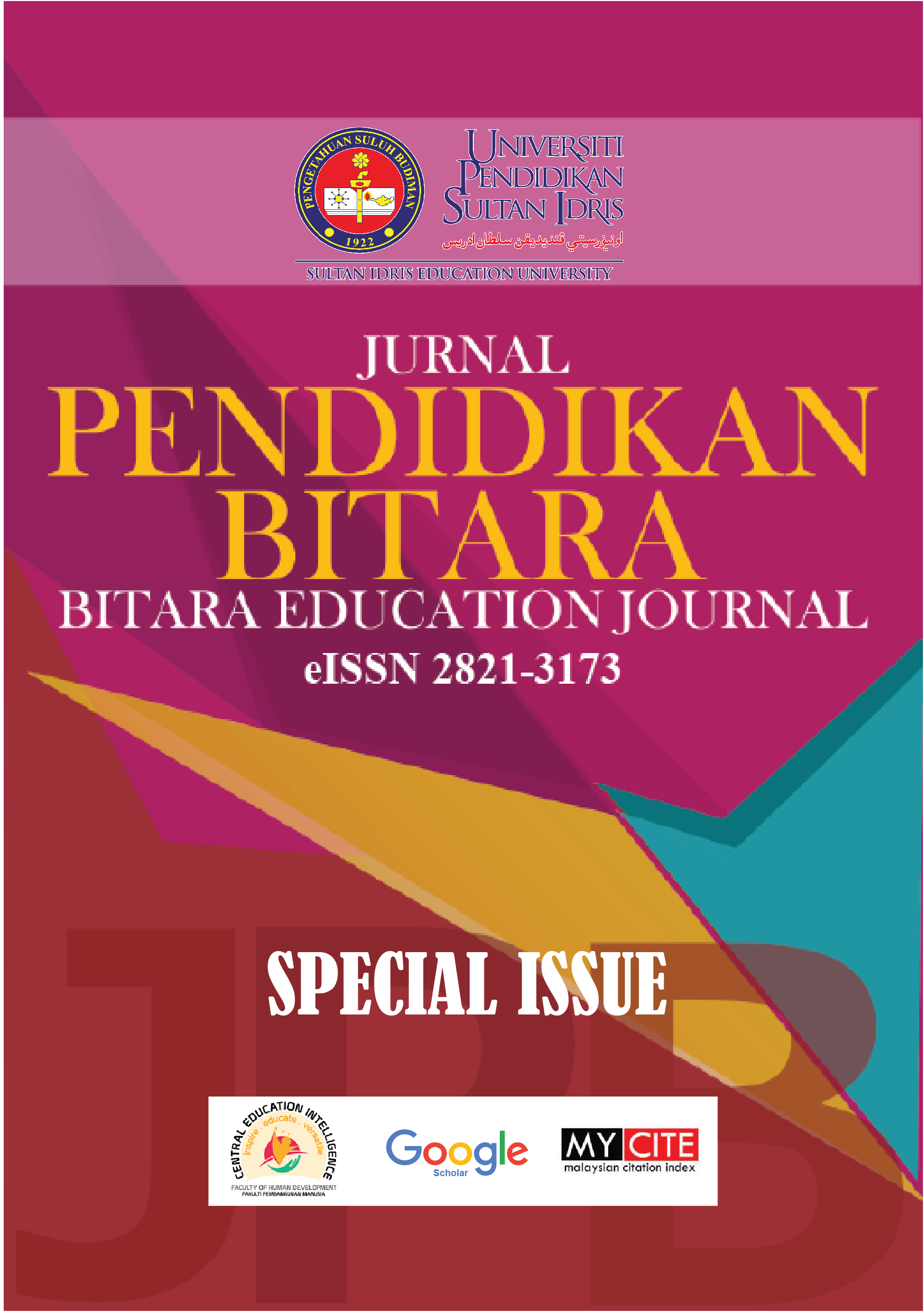The Intersection of Mobile Gaming and Education: A Bibliometric Study
DOI:
https://doi.org/10.37134/bitara.vol17.sp2.7.2024Keywords:
Mobile Gaming, Education, GamificationAbstract
This bibliometric study investigates the intersection of mobile gaming and education, focusing on scholarly articles from Scopus published between 2019 and 2024. We employ co-citation, co-occurrence, and co-authorship analyses to uncover key trends, influential authors, and central themes. Our research questions address the nature of co-occurrence patterns, co-authorship networks, and international collaborations, alongside the relationship between bibliometric coupling by authors, documents, and countries. The analysis reveals a significant increase in publication volume over the past five years, emphasizing mobile gaming's growing educational relevance. Co-citation analysis identifies the most frequently co-cited journals, underscoring their pivotal role in shaping the field. Co-occurrence analysis highlights emerging topics such as gamification, game-based learning, and educational technology. At the same time, co-authorship and countries' collaboration mapping illustrate the interdisciplinary and international nature of this research domain. Additionally, our study examines the interplay between bibliometric coupling by authors, documents, and countries, providing a nuanced understanding of research dynamics. This study offers valuable insights for researchers, educators, and policymakers aiming to harness mobile gaming for educational enhancement, underscoring the importance of ongoing exploration in this rapidly evolving field.
Downloads
References
Appio, F. P., Martini, A., Massa, S., & Testa, S. (2016). Unveiling the intellectual origins of Social Media-based innovation: insights from a bibliometric approach. Scientometrics, 108(1), 355–388. https://doi.org/10.1007/s11192-016-1955-9
Arshad, Z. M., Azman, M. N. A., Kenzhaliyev, O., & Kassimov, F. R. (2024). Educational Enhancement Through Augmented Reality Simulation: A Bibliometric Analysis. International Journal of Advanced Computer Science and Applications, 15(7), 706–714.
Chen, Y., So, W. W. M., Zhu, J., & Chiu, S. W. K. (2024). STEM learning opportunities and career aspirations: the interactive effect of students’ self-concept and perceptions of STEM professionals. International Journal of STEM Education, 11(1), 1–21.
Khan, F. M., & Gupta, Y. (2022). A bibliometric analysis of mobile learning in the education sector. Interactive Technology and Smart Education, 19(3), 338–359.
Khiste, G. P., & Paithankar, R. R. (2017). Analysis of bibliometric term in scopus. International Research Journal, 1(32), 78–83.
Kim, Y., Hong, S., & Choi, M. (2022). Effects of serious games on depression in older adults: systematic review and meta-analysis of randomized controlled trials. Journal of Medical Internet Research, 24(9), 1–20.
Nazarov, D., & Klarin, A. (2020). Taxonomy of Industry 4.0 research: Mapping scholarship and industry insights. Systems Research and Behavioral Science, 37(4), 535–556.
Pham, S. T. H., & Sampson, P. M. (2022). The development of artificial intelligence in education: A review in context. Journal of Computer Assisted Learning, 38(5), 1408–1421.
Troussas, C., Krouska, A., Alepis, E., & Virvou, M. (2021). Intelligent and adaptive tutoring through a social network for higher education. New Review of Hypermedia and Multimedia, 26(3–4), 138–167. https://doi.org/10.1080/13614568.2021.1908436
Troussas, C., Krouska, A., & Sgouropoulou, C. (2020). Collaboration and fuzzy-modeled personalization for mobile game-based learning in higher education. Computers & Education, 144, 103698. https://doi.org/https://doi.org/10.1016/j.compedu.2019.103698
Van Eck, N. J., & Waltman, L. (2007). Bibliometric mapping of the computational intelligence field. International Journal of Uncertainty, Fuzziness and Knowledge-Based Systems, 15(5), 625–645.
Xiao, L. Y., & Park, S. (2024). Better than Industry Self-Regulation: Compliance of Mobile Games with Newly Adopted and Actively Enforced Loot Box Probability Disclosure Law in South Korea.
Yi, J., Lee, Y., & Kim, S.-H. (2019). Determinants of growth and decline in mobile game diffusion. Journal of Business Research, 99, 363–372.
Zhai, H., Yang, M., & Chan, K. C. (2022). Does digital transformation enhance a firm’s performance? Evidence from China. Technology in Society, 68, 1–10.
Downloads
Published
How to Cite
Issue
Section
License
Copyright (c) 2024 Indirani Munusamy, Mohd Faizal Nizam Lee Abdullah

This work is licensed under a Creative Commons Attribution-NonCommercial-ShareAlike 4.0 International License.





